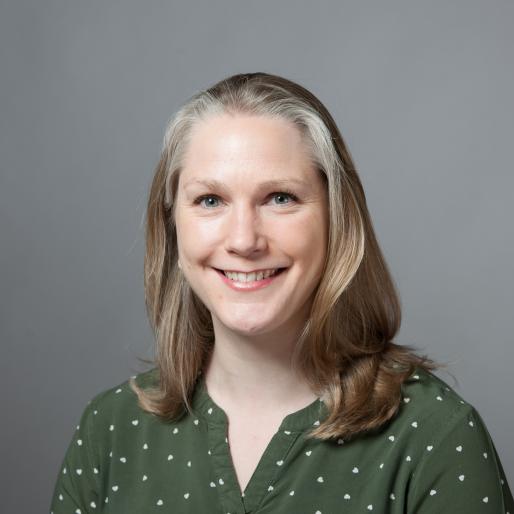The big picture: using wildflower strips for pest control
The International Weed Genomics Consortium (IWGC), in which Rothamsted is a partner, celebrates its third anniversary this month having trebled the number of genomes it aimed to sequence and annotate. To date, IWGC have sequenced more than 30 genomes for 19 critical species independently while collaborating with organizations around the world to assist in sequencing and annotating 30 additional genomes for 26 species. A list of the species for which genome sequencing, assembly, and annotation are available can be accessed via the consortium’s WeedPedia website, and other collaborative databases.
Additionally, IWGC has organised multiple conferences and training opportunities to share its findings with others.
“A genomic based approach to weed research is absolutely vital for informing the design and implementation of sustainable control methods now and in in the future,” said Dr Dana MacGregor who is on the IWGC Executive Board. “For instance, without an understanding of how specific gene families have expanded in weedy species, it is much more challenging to predict what methods will effectively control species where multiple-herbicide resistance is already present.”
Dr MacGregor has benefitted through IWGC funding and research collaboration. “This is a unique collaboration as it brings together many of the big players in the agrochemical sector with the cutting-edge expertise of the academic sector to generate knowledge that directly addresses the real-world problems that are holding back modern agriculture,” she says.
“A genomic based approach to weed research is absolutely vital for informing the design and implementation of sustainable control methods now and in in the future.”
Although the IWGC have already exceeded their original goal to generate genomes from 10 of the most troublesome agricultural weeds, to make use of these data and to build on the numerous technical and bioinformatic advancements that have resulted since IWGC’s founding, ongoing support will be needed, according to Dr Lee Van Wychen, Executive Director of Science Policy for the Weed Science Society of America (WSSA).
“It takes money and people to grow the plants; collect tissue; sequence, assemble and annotate the genomes; upload and store the data; and publicize the findings,” he says. “So, we’re making a case to renew funding from all possible sources to continue this innovative work,” he said.
The potential to create entirely new and much more effective strategies to control weeds is at stake. “The long-term vision for this collaborative effort is to use weed genomics discoveries to offer new paradigms in weed control,” says Van Wychen. “Future IWGC weed genomics discoveries promise to create effective weed control methods that could far exceed current chemical, cultural, mechanical or biological control practices by targeting the traits that make the worst weeds so successful.”
Making these discoveries and sharing them on an ongoing basis through conferences and training initiatives, has been possible only through funding from the Foundation for Food & Agriculture Research (FFAR), industry sponsors, and founding members BASF, Bayer, Corteva, and Syngenta, says Todd Gaines, associate professor of molecular weed science at Colorado State University, who leads the IWGC executive committee. “We’re not only energized about current IWGC achievements, which will be spelled out in an upcoming research review on weed genomics, but by our plans for future achievements to come,” he adds.
To join the consortium and its efforts to control detrimental weeds worldwide, contact IWGC.

Weed Molecular Biologist
Rothamsted Research is the longest-running agricultural research institute in the world. We work from gene to field with a proud history of ground-breaking
discoveries in areas as diverse as crop management, statistical interpretation and soil health. Our founders, in 1843, were the pioneers of modern
agriculture, and we are known for our imaginative science and our collaborative approach to developing innovative farm practice.
Through independent research, we make significant contributions to improving agri-food systems in the UK and internationally, with
economic impact estimated to exceed £3 bn in annual contribution to the UK economy. Our strength lies in our systems approach, which combines strategic research,
interdisciplinary teams and multiple partnerships.
Rothamsted is home to three unique National Bioscience Research Infrastructures which are open to researchers from all over the world:
The Long-Term Experiments,
Rothamsted Insect Survey and the
North Wyke Farm Platform.
We are strategically funded by the Biotechnology and Biological Sciences Research Council (BBSRC), with additional support from other national and
international funding streams, and from industry. We are also supported by the Lawes Agricultural Trust (LAT).
The Biotechnology and Biological Sciences Research Council is part of UK Research and Innovation, a non-departmental public body funded by a grant-in-aid
from the UK government.
BBSRC invests to push back the frontiers of biology and deliver a healthy, prosperous and sustainable future. Through our investments, we build and support a vibrant,
dynamic and inclusive community which delivers ground-breaking discoveries and develops bio-based solutions that contribute to tackling global challenges,
such as sustainable food production, climate change, and healthy ageing.
As part of UK Research and Innovation (UKRI), we not only play a pivotal role in fostering connections that enable the UK’s world-class research and innovation system
to flourish – we also have a responsibility to enable the creation of a research culture that is diverse, resilient, and engaged.
BBSRC proudly forges interdisciplinary collaborations where excellent bioscience has a fundamental role. We pioneer approaches that enhance the equality, diversity,
and inclusion of talent by investing in people, infrastructure, technologies, and partnerships on a global scale.
The Lawes Agricultural Trust, established in 1889 by Sir John Bennet Lawes, supports Rothamsted Research’s national and international agricultural science through the provision of land, facilities and funding. LAT, a charitable trust, owns the estates at Harpenden and Broom's Barn, including many of the buildings used by Rothamsted Research. LAT provides an annual research grant to the Director, accommodation for nearly 200 people, and support for fellowships for young scientists from developing countries. LAT also makes capital grants to help modernise facilities at Rothamsted, or invests in new buildings.